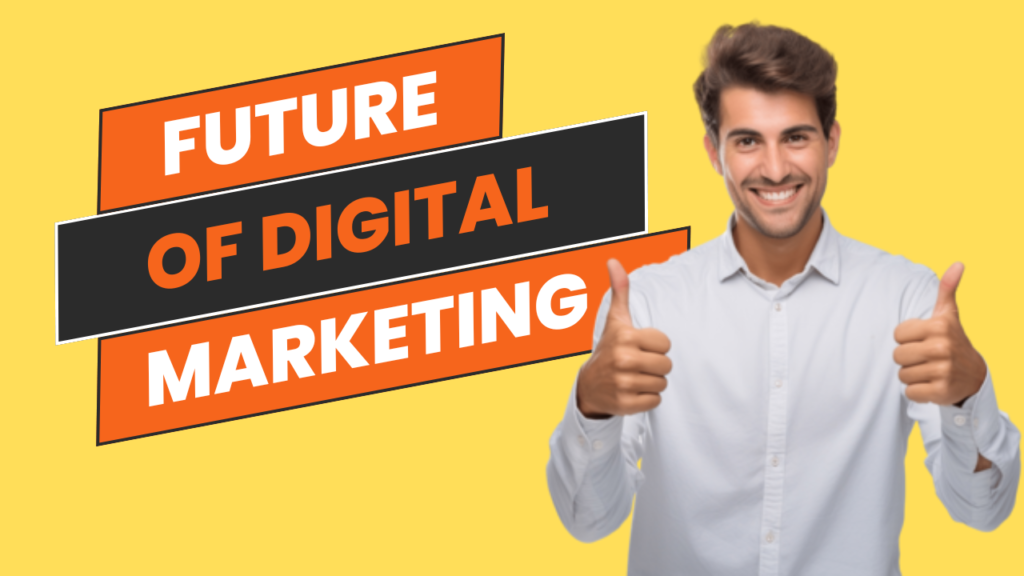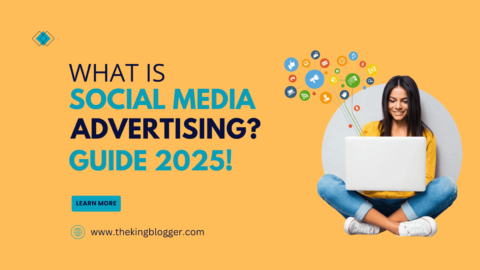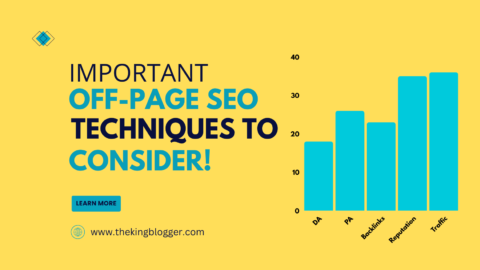The Future of Digital Marketing: What to Expect!
The Future of Digital Marketing: What to Expect!
The Future of Digital Marketing: What to Expect!
The Future of Digital Marketing: What to Expect!
As the world becomes more connected and technology continues to advance, the future of digital marketing will evolve in ways that will push the boundaries of innovation and personalization.
Digital marketing has transformed how businesses connect with their audience, and the future promises even more changes.
To stay relevant, marketing professionals and businesses must adapt to these trends and embrace new technologies.
This article curated by the expert researchers and writers of The King Blogger, explores the key trends shaping the future of digital marketing and what businesses can expect in the coming years.
1. AI and Machine Learning
Artificial intelligence and machine learning are both significant drivers in the digital marketing space, but their influence is only expected to grow.
AI is revolutionizing how brands understand and interact with customers by automating processes, delivering personalized content, and analyzing consumer behavior at scale.
In the future, AI will become even more integrated into marketing strategies. Predictive analytics, which uses AI to forecast future consumer behavior, will help brands anticipate customer needs and fine-tune their campaigns.
Chatbots, powered by AI, will evolve to provide more human-like interactions, enabling businesses to offer real-time customer support 24/7.
As AI continues to advance, it will enable marketers to focus more on strategy while allowing machines to handle repetitive tasks like ad targeting, A/B testing, and content optimization.
2. Hyper-Personalization
Personalization is no longer optional, it is expected. However, AI will push personalization to new levels. Hyper-personalization, driven by AI and data analytics, will allow marketers to craft experiences that are uniquely tailored to individual consumers.
Imagine visiting a website and seeing content, product recommendations, and even pricing customized based on your browsing behavior, past purchases, and preferences.
This level of personalization is already being implemented by companies like Amazon and Netflix, but it will become more widespread. With access to detailed data, marketers will be able to offer a seamless, personalized journey across all touchpoints.
From email campaigns to social media ads and beyond. The challenge will be balancing personalization with privacy, ensuring that customers feel valued rather than surveilled.
3. Voice Search and Smart Assistants
As smart assistants like Siri, Alexa, and Google Assistant become more integrated into daily life, voice search is set to play a significant role in the future of digital marketing.
More and more consumers are using voice commands to search for information, make purchases, and interact with brands. This shift is changing how marketers approach search engine optimization.
In the future, businesses will need to optimize their content for voice search by focusing on conversational language and answering questions directly.
Voice searches tend to be longer and more specific than text-based queries. Marketers will need to anticipate what their customers are likely to ask and provide content that aligns with those queries.
Voice search also introduces a new dynamic to SEO by prioritizing featured snippets. Featured snippets are those quick, concise answers to questions that appear at the top of Google search results.
Brands that can secure these positions will have a major advantage in the era of voice search.
4. Augmented Reality (AR) and Virtual Reality (VR)
One of the most exciting aspects of the digital marketing future is the potential of augmented reality and virtual reality to create immersive brand experiences.

These technologies will make waves in industries like gaming and real estate, but they are now making their way into the marketing world.
AR and VR will allow brands to offer interactive experiences that engage customers in new ways. For example, retailers can let customers virtually “try on” clothes or makeup before purchasing, while real estate companies can offer virtual property tours.
As AR and VR become more accessible, businesses of all sizes will be able to implement these technologies to boost customer engagement and sales.
5. The Rise of Video Content
Video content has been a dominant force in digital marketing for several years, and this video content trend shows no signs of slowing down. In fact, video is expected to make up over 80% of all online traffic by 2025.
Platforms like YouTube, TikTok, Facebook Reels, and Instagram Reels have made video content easily accessible, and consumers are increasingly expecting video as a primary form of communication from brands.
In the future, short-form videos will continue to gain popularity, offering brands the opportunity to convey their message quickly and effectively. Live streaming is also on the rise, allowing for real-time interaction with customers and building a sense of community.
Brands that invest in video production and storytelling will have a significant advantage in capturing the attention of their audience, competing with competitors, and fostering engagement.
6. Privacy Concerns and Data Protection
As personalization becomes more advanced, data privacy concerns will also intensify.
Consumers are becoming more aware of how their personal data is being used, and regulations like the General Data Protection Regulation (GDPR) and the California Consumer Privacy Act (CCPA) are enforcing stricter data protection measures.
In the future, digital marketing will require businesses to be transparent about how they collect, store, and use consumer data.
Marketers will need to find the right balance between personalization and privacy, ensuring they respect consumer preferences while delivering relevant content.
This means offering clear opt-in processes, providing detailed information about data usage, and giving consumers control over their data.
7. Influencer Marketing
Influencer marketing has become a powerful tool for brands to connect with their audience authentically.
As consumers become more skeptical of traditional advertising, they are turning to influencers they trust for recommendations and reviews. This trend will grow stronger in the future.
However, influencer marketing is also evolving. In the future, we will see the rise of micro and nano-influencers, individuals with smaller but highly engaged audiences.
These influencers often have a more authentic connection with their followers, leading to higher levels of trust and influence.
Brands will need to focus on building long-term relationships with influencers who align with their values and resonate with their target audience.
8. Sustainability and Social Responsibility
Consumers are becoming increasingly concerned about sustainability and social responsibility, and this shift in values will play a crucial role in the future of digital marketing.
Brands that are transparent about their environmental impact and ethical practices will win the loyalty of conscious consumers.
Marketing strategies will need to reflect these values by showcasing a company’s commitment to sustainability and ethical practices.
Consumers want to support brands that align with their beliefs, and digital marketing will need to focus on storytelling that highlights these efforts.
Conclusion
The future of digital marketing is exciting, dynamic, and full of opportunities. As technology continues to advance, marketers will need to embrace innovations like AI, voice search, and immersive experiences to stay ahead of the curve.
Personalization, video content, and influencer marketing will remain key components of successful strategies, but they must be balanced with privacy concerns and shifting consumer values.
By staying adaptable and forward-thinking, businesses can thrive in this ever-evolving landscape and take full advantage of what the future holds.
Don’t know what Digital Marketing is! Read this article “What is Digital Marketing”.





